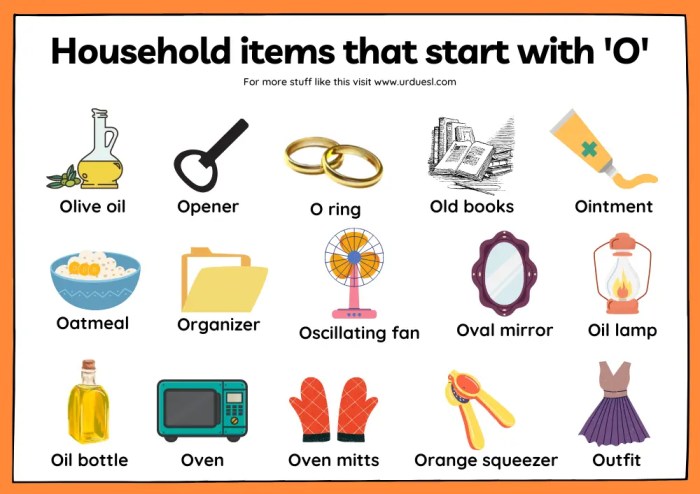If you have stomach problems frequent small meals will save you – If you have stomach problems, frequent small meals will save you. This article explores the science behind this common advice, examining how smaller, more frequent meals can impact digestion, alleviate symptoms, and potentially improve overall gut health. We’ll delve into the physiological mechanisms, potential benefits, and even some potential drawbacks of this dietary approach.
Understanding common stomach problems like indigestion, acid reflux, ulcers, and IBS is crucial. We’ll look at their causes, symptoms, and potential long-term effects. Then, we’ll analyze how eating smaller, more frequent meals might affect these issues, from the impact on gastric emptying to the role of hormones like ghrelin and leptin. Finally, we’ll consider potential drawbacks, nutritional concerns, and practical meal planning strategies.
Understanding Stomach Problems
Stomach problems are incredibly common, affecting people of all ages and backgrounds. From the occasional indigestion to more serious conditions like ulcers, understanding the causes, symptoms, and potential consequences is crucial for proactive health management. This exploration delves into the world of stomach ailments, providing insights into various conditions and their characteristics.Stomach problems encompass a broad spectrum of discomfort and distress, ranging from mild indigestion to severe complications.
Knowing the nuances of each condition allows for better self-assessment and timely intervention. Understanding the underlying causes and potential triggers is equally important in managing these issues effectively.
Common Stomach Problems
Numerous factors can contribute to stomach problems, including dietary habits, stress levels, and underlying medical conditions. Recognizing the common culprits is the first step toward effective management. Common stomach problems include indigestion, acid reflux, ulcers, and irritable bowel syndrome (IBS).
Indigestion
Indigestion, a common digestive discomfort, often manifests as a feeling of fullness, bloating, or heartburn after meals. Factors like overeating, certain foods (e.g., spicy or fatty), and stress can trigger indigestion. Symptoms typically include a burning sensation in the upper abdomen, belching, and nausea.
Acid Reflux
Acid reflux, a prevalent digestive issue, occurs when stomach acid flows back into the esophagus. This backward flow can cause a burning sensation in the chest, often referred to as heartburn. Common triggers include eating large meals, lying down soon after eating, and consuming acidic foods or drinks. Symptoms may include heartburn, regurgitation of stomach acid, and a sour taste in the mouth.
Ulcers
Ulcers are sores that develop on the lining of the stomach or the upper portion of the small intestine. These sores can be caused by a bacterial infection (Helicobacter pylori) or long-term use of nonsteroidal anti-inflammatory drugs (NSAIDs). Symptoms often include a burning or gnawing pain in the stomach, often occurring between meals or at night. In some cases, ulcers may not cause noticeable symptoms.
Irritable Bowel Syndrome (IBS)
Irritable bowel syndrome (IBS) is a chronic condition affecting the large intestine. The exact cause of IBS remains unknown, but it’s believed to involve a combination of factors, including stress, diet, and changes in gut bacteria. Symptoms of IBS can vary significantly between individuals and may include abdominal pain, bloating, gas, diarrhea, and/or constipation.
Causes and Triggers of Stomach Problems
Numerous factors can trigger or contribute to various stomach ailments. Understanding these triggers is essential for preventative measures and effective management. Diet, stress, and underlying medical conditions are among the most common contributing factors.
Symptoms of Stomach Problems
The symptoms of stomach problems can vary significantly depending on the specific condition. Recognizing the symptoms associated with each condition is vital for early diagnosis and appropriate treatment. The table below provides a comparative overview of common symptoms and potential causes for different stomach ailments.
Potential Long-Term Effects
Left untreated, frequent stomach problems can lead to various complications. Chronic indigestion or acid reflux, for example, can cause damage to the esophagus, potentially leading to esophageal strictures or Barrett’s esophagus. Ulcers, if not managed, can perforate the stomach lining, leading to life-threatening complications. Chronic IBS can impact quality of life due to persistent discomfort and disruptions in daily routines.
| Stomach Ailment | Common Symptoms | Potential Causes |
|---|---|---|
| Indigestion | Fullness, bloating, heartburn | Overeating, spicy/fatty foods, stress |
| Acid Reflux | Heartburn, regurgitation, sour taste | Large meals, lying down after eating, acidic foods/drinks |
| Ulcers | Burning/gnawing pain, between meals/night | Bacterial infection (Helicobacter pylori), NSAID use |
| IBS | Abdominal pain, bloating, gas, diarrhea/constipation | Stress, diet, gut bacteria imbalances |
The Science of Frequent Small Meals: If You Have Stomach Problems Frequent Small Meals Will Save You

Frequent small meals, a dietary approach gaining popularity, often promise relief from stomach discomfort. This approach suggests that eating smaller portions more often can improve digestion and potentially alleviate symptoms related to various stomach problems. However, the underlying scientific mechanisms and their efficacy require careful examination. This exploration delves into the physiological effects of frequent small meals on digestion, considering the role of hormones and scientific evidence supporting its claims.Small, frequent meals are frequently proposed as a solution for stomach problems, but their effects are multifaceted and require understanding the interplay between food intake, digestion, and the body’s hormonal response.
The frequency and quantity of food intake directly impact the digestive process. This article will dissect the science behind this approach, examining the physiological mechanisms and the potential benefits and drawbacks of this dietary strategy.
Physiological Mechanisms of Digestion with Frequent Small Meals
The digestive system is a complex network responding to the volume and composition of food. Frequent, small meals create a more continuous flow of nutrients into the stomach, which, in turn, triggers a gentler, more consistent digestive response compared to large meals. This continuous flow might reduce the strain on the stomach, potentially alleviating discomfort.
Impact on Gastric Emptying Time
The rate at which the stomach empties its contents (gastric emptying time) is a critical factor in digestion. Frequent small meals tend to result in a slower, more controlled emptying process compared to the rapid emptying triggered by large meals. This slower emptying can allow the digestive system more time to process nutrients and potentially reduce the risk of indigestion or discomfort.
Furthermore, the consistent, moderate volume of food in the stomach can maintain a more stable environment for optimal enzyme activity.
Hormonal Regulation of Appetite and Digestion
Hormones like ghrelin and leptin play crucial roles in regulating appetite and digestion. Ghrelin, often called the “hunger hormone,” stimulates appetite, while leptin signals satiety. Frequent small meals can influence the fluctuating levels of these hormones, potentially leading to a more stable appetite regulation and preventing drastic changes in hunger and fullness signals. This sustained release of nutrients might also affect the release of these hormones in a more controlled and manageable manner.
Scientific Evidence on Alleviating Stomach Problems
While the concept of frequent small meals seems intuitively beneficial for digestion, robust scientific evidence directly supporting its ability to alleviate specific stomach problems is limited. Studies on the topic often involve small sample sizes or focus on specific aspects of digestion, making it difficult to draw conclusive, widespread benefits. Furthermore, individual responses vary significantly, and a personalized approach to dietary interventions is crucial.
Effects of Frequent Small Meals on Different Stomach Problems
| Stomach Problem | Potential Effect of Frequent Small Meals |
|---|---|
| Acid Reflux | Potentially reduces the amount of stomach acid released at once, which might decrease the likelihood of reflux episodes. However, individual responses vary, and further research is needed. |
| Irritable Bowel Syndrome (IBS) | Some individuals with IBS report improved symptoms with frequent, small meals, but the exact mechanism remains unclear. Small meals can reduce the load on the digestive system and may aid in symptom management. |
| Gastritis | Frequent, small meals might reduce the irritating effects of large meals on the stomach lining, thus providing relief. However, this needs more substantial clinical research. |
| Ulcers | Frequent, small meals might help to minimize the irritation and stress on the stomach lining, which could potentially alleviate symptoms. However, a personalized approach to dietary intervention, alongside medical advice, is crucial. |
Potential Benefits of Small Meals for Stomach Health
Small meals, often spaced throughout the day, can significantly impact digestive health. Beyond simply feeling fuller for longer, these smaller portions can lead to a more stable metabolic environment, potentially easing symptoms for various stomach ailments. This approach can be a valuable strategy for managing issues like acid reflux, irritable bowel syndrome (IBS), and ulcers, among others. The focus on smaller, more frequent meals emphasizes gradual nutrient intake, which is crucial for optimizing digestion and overall well-being.Frequent small meals can have a profound impact on blood sugar regulation, appetite control, and the health of your gut microbiome.
This article delves into the potential benefits of this eating strategy for improving stomach health.
Regulating Blood Sugar Levels
Frequent small meals can help regulate blood sugar levels by preventing dramatic spikes. When you consume large meals, your blood sugar levels rise rapidly, potentially leading to insulin surges. This rapid fluctuation can trigger symptoms like fatigue and cravings. Consuming smaller portions more frequently helps to maintain a more consistent blood sugar level, reducing the likelihood of these spikes.
This approach can be particularly beneficial for individuals prone to blood sugar imbalances or managing diabetes. For instance, a person experiencing frequent blood sugar spikes might find that consuming smaller portions of complex carbohydrates and protein throughout the day helps to maintain more stable blood sugar levels.
Having stomach issues? Frequent small meals can be a lifesaver. It’s all about managing your digestion, and frankly, a good boss is all about managing their team’s well-being too. Check out this insightful article on how being better boss isn’t difficult you think for some practical tips on leadership. Ultimately, small, regular meals are key to keeping your tummy happy and healthy.
Managing Appetite and Cravings, If you have stomach problems frequent small meals will save you
Small, frequent meals can help manage appetite and cravings by preventing extreme hunger pangs. When you go long periods without eating, your body may interpret this as a scarcity signal, leading to increased hunger and cravings for high-calorie foods. By consuming small portions at regular intervals, you keep your metabolism active, maintain a steady supply of nutrients, and reduce the likelihood of overeating.
This can be especially helpful in preventing unhealthy cravings, particularly for sugary or processed foods. For example, an individual struggling with emotional eating may find that regular, small meals throughout the day help to reduce the intensity of their hunger and cravings.
Reducing Indigestion and Heartburn
Frequent small meals can lessen the risk of indigestion and heartburn. Large meals put a greater strain on the digestive system, potentially leading to acid reflux or other digestive discomfort. Small meals allow the stomach to process food more efficiently, reducing the likelihood of overfilling and the associated digestive issues. This is particularly relevant for individuals with existing conditions like acid reflux or gastroesophageal reflux disease (GERD).
By avoiding large meals, individuals can minimize the strain on their digestive systems, thereby reducing the risk of these symptoms.
Improving Gut Health and Beneficial Bacteria
The frequency of meals can impact the gut microbiome, the community of microorganisms residing in your digestive tract. Small, frequent meals can create a more stable and nutrient-rich environment for beneficial bacteria to thrive. Maintaining a consistent supply of nutrients supports the growth of beneficial bacteria, which play a crucial role in digestion, nutrient absorption, and overall gut health.
This can lead to improved digestion, reduced bloating, and enhanced nutrient absorption. For example, studies have shown that individuals who consume frequent, small meals experience a more diverse and balanced gut microbiome compared to those who consume larger, less frequent meals.
Potential Benefits Summary Table
| Stomach Ailment | Potential Benefit of Small Meals |
|---|---|
| IBS (Irritable Bowel Syndrome) | May help regulate bowel movements, reduce bloating, and manage symptoms. |
| Acid Reflux/Heartburn | May reduce the strain on the esophagus and stomach, minimizing the risk of acid reflux. |
| Ulcers | May help reduce stomach acid exposure, promoting healing and preventing further damage. |
Potential Drawbacks and Considerations
Frequent small meals, while beneficial for some with stomach issues, aren’t a universally perfect solution. Understanding the potential downsides is crucial for tailoring a healthy eating plan. A well-structured meal plan should always prioritize overall nutritional balance, not just the frequency of meals.The constant need to prepare and consume multiple small meals can lead to increased time commitment and potentially disrupt daily routines.
This is especially true for those with busy schedules or limited kitchen access. Furthermore, maintaining consistent portion control with frequent small meals requires meticulous planning and attention to detail.
Dealing with stomach issues? Frequent small meals are often a lifesaver, preventing those uncomfortable digestive hiccups. Figuring out how to pay for senior care, especially when health problems arise, can be tricky. Fortunately, resources like how to pay for senior care can help navigate those complexities. But back to the basics: small, frequent meals are key for managing those pesky stomach problems.
Potential Nutritional Deficiencies
Maintaining a balanced intake of essential nutrients is paramount when following a frequent small-meal diet. Skipping meals or not properly planning for the nutritional needs within each small meal can easily lead to deficiencies. If the small meals aren’t diverse enough to cover all macro and micronutrient needs, long-term health issues can arise. Careful consideration must be given to ensure adequate intake of vitamins, minerals, and protein across the day.
For example, someone relying on small portions of processed snacks for frequent meals might miss out on crucial vitamins and minerals found in whole foods.
Portion Control and Meal Planning Complexity
Portion control is essential for frequent small meals. Inaccuracies can quickly lead to either overeating or nutritional imbalances. Calculating and precisely measuring portions for multiple small meals requires significant attention to detail. This can be challenging for individuals who aren’t accustomed to meticulous meal planning or those with limited access to kitchen equipment. For instance, a person might consume more calories throughout the day unintentionally by eating more small portions than they would with a larger meal.
Comparison to Larger, Less Frequent Meals
Frequent small meals versus larger, less frequent meals each have their own set of pros and cons. Larger meals, while potentially less convenient for digestion in some cases, allow for a more relaxed mealtime experience and can simplify meal planning. Conversely, frequent small meals may provide more sustained energy levels and better blood sugar regulation for some individuals.
The best approach depends on individual needs and circumstances.
Risks for Specific Medical Conditions or Eating Disorders
Individuals with certain medical conditions or eating disorders should exercise caution when adopting a frequent small-meal diet. For instance, those with conditions like diabetes or hypoglycemia may need to carefully monitor their blood sugar levels and adjust portion sizes to prevent fluctuations. Similarly, individuals with eating disorders may struggle with controlling portions and developing unhealthy eating patterns associated with frequent small meals.
Professional medical advice is crucial for individuals with these conditions to ensure the diet aligns with their specific needs.
Potential Drawbacks Table
| Characteristic | Frequent Small Meals | Larger, Less Frequent Meals |
|---|---|---|
| Digestion | Potentially easier for some with stomach issues, but may lead to frequent digestive events if not planned correctly. | Can be more challenging for some, but less frequent digestive events. |
| Energy Levels | Potential for sustained energy levels, but requires careful meal planning to prevent dips. | Potential for energy spikes and crashes if the meals aren’t balanced. |
| Portion Control | Requires meticulous planning and portion control, potentially increasing the risk of overeating or under-eating. | Generally easier to maintain portion control. |
| Meal Planning Complexity | Significantly more complex, requiring detailed meal planning and precise portion control. | Simpler and less time-consuming to plan. |
| Nutritional Balance | Increased risk of nutritional deficiencies if not planned meticulously. | Easier to ensure balanced nutrition with a more comprehensive meal. |
Practical Application and Meal Planning
Frequent small meals can be a game-changer for managing stomach issues, but successful implementation requires careful planning and understanding of portion sizes and food choices. This section dives into the practical aspects of transitioning to a frequent small-meal approach, offering a sample meal plan and essential tips for success.Successfully managing frequent small meals hinges on thoughtful meal planning and a clear understanding of portion control.
The goal is to provide your body with consistent, controlled nourishment throughout the day, preventing significant fluctuations in blood sugar and promoting better digestion. By doing so, you can avoid overeating and the discomfort that often accompanies large meals.
Having stomach issues? Frequent small meals can be a lifesaver! It’s a great way to manage discomfort and keep your digestion happy. Looking for some delicious and healthy options for those smaller meals? Check out these 40 healthy and international recipes for meals under 5 – perfect for portion control and keeping your stomach content.
Small, frequent meals are a fantastic way to avoid overeating and subsequent indigestion, so give them a try!
Sample Meal Plan for a Day
A well-structured meal plan is crucial for successfully adopting frequent small meals. This plan emphasizes nutrient-rich foods, portion control, and hydration. A sample daily meal plan incorporating frequent small meals is provided below:
| Meal Type | Time | Approximate Portion Size |
|---|---|---|
| Breakfast (1) | 7:00 AM | 1/2 cup oatmeal with berries and a sprinkle of nuts |
| Snack (2) | 9:00 AM | 1 small apple with 2 tablespoons of almond butter |
| Lunch (3) | 11:00 AM | Small salad with grilled chicken breast and a light vinaigrette dressing |
| Snack (4) | 1:00 PM | Handful of mixed vegetables with hummus |
| Dinner (5) | 5:00 PM | Small portion of lean protein (fish or tofu) with 1 cup of brown rice and steamed vegetables |
| Snack (6) | 7:00 PM | Greek yogurt with a handful of granola |
Practical Steps for Implementation
Implementing frequent small meals requires a proactive approach. Key steps include:
- Gradual Transition: Don’t try to overhaul your eating habits overnight. Start by incorporating one or two small meals into your daily routine, gradually increasing the frequency as your body adjusts.
- Meal Prep: Preparing small portions of food in advance can greatly assist with portion control and reduce impulsive choices.
- Mindful Eating: Pay attention to your body’s hunger and fullness cues. Stop eating when you feel comfortably satisfied, not overly full.
- Using Smaller Plates and Bowls: Visual cues can play a role in portion control. Smaller dishes can help you consume smaller portions without feeling deprived.
Importance of Hydration
Adequate hydration is essential for optimal digestion, particularly with frequent small meals. Water helps to break down food and move it through the digestive system more efficiently. Dehydration can lead to digestive discomfort.
Best Types of Foods
Prioritize foods that are easily digestible and provide sustained energy. Good choices include lean proteins, whole grains, fruits, vegetables, and healthy fats.
Portion Control and Meal Planning Tips
Portion control is paramount. Use measuring cups and spoons to ensure consistent portion sizes. Also, consider:
- Keeping a Food Journal: Tracking your meals and snacks helps you identify patterns and make necessary adjustments.
- Utilizing Meal Planning Apps or Templates: These tools can assist in creating balanced meal plans that incorporate frequent small meals.
- Incorporating High-Fiber Foods: High-fiber foods contribute to satiety, promoting the feeling of fullness for longer periods, and aid digestion.
Illustrative Examples
Frequent small meals can significantly impact digestive health, and understanding how it works in practice is key. These examples demonstrate the potential benefits and challenges of adopting this dietary approach for various individuals experiencing stomach problems.This section dives into specific case studies, illustrating the impact of frequent small meals on digestive experiences, and highlights the importance of personalized dietary plans and professional guidance.
We’ll explore how a personalized approach can address individual needs and sensitivities while promoting overall digestive well-being.
Hypothetical Case Study: Sarah’s Journey
Sarah, a 35-year-old, experienced chronic indigestion and bloating. Her symptoms worsened after large meals, often leading to discomfort and nausea. By transitioning to frequent small meals, Sarah noticed a marked improvement in her symptoms. She found that consuming smaller portions more frequently throughout the day reduced the strain on her digestive system, minimizing bloating and discomfort. She reported feeling fuller longer, and her energy levels remained more stable.
Challenges and Solutions: David’s Experience
David, a busy professional, initially struggled with the concept of frequent small meals. He found it challenging to adjust his schedule to accommodate multiple smaller meals. He also worried about missing out on social gatherings and dining opportunities. However, he developed solutions. He prepared pre-portioned snacks and meals to take with him.
He also incorporated smaller, more frequent meals into his lunch breaks. He gradually adapted his lifestyle to accommodate the dietary change, demonstrating the importance of gradual implementation.
Comparison: Two Different Digestive Experiences
Imagine two individuals, Emily and Mark, both with similar stomach issues. Emily adopted a frequent small-meal approach. She reported less bloating, improved digestion, and reduced discomfort. Mark, however, continued with larger, less frequent meals. He experienced more frequent episodes of indigestion and bloating, as his digestive system struggled to process larger portions.
The comparison highlights the importance of portion size and meal frequency for optimal digestive health.
Sample Case Study: John’s Digestive Improvement
John, a 40-year-old with irritable bowel syndrome (IBS), found his digestive issues significantly improved after implementing a frequent small-meal plan. He experienced reduced cramping, less frequent diarrhea, and overall improved comfort. His doctor noted the positive impact on his overall well-being. This illustrates the potential for a personalized approach to dietary management for IBS and other digestive conditions.
Importance of Professional Consultation
Before making significant dietary changes, particularly if you have pre-existing health conditions, it’s crucial to consult a healthcare professional. A doctor or registered dietitian can assess your specific needs, identify potential risks, and create a personalized dietary plan that aligns with your health goals and current medical conditions. This personalized approach ensures safety and effectiveness.
Visual Representation: Sample Meal Plan
This flowchart visually represents a sample meal plan for frequent small meals. It depicts the suggested timing and portion sizes throughout the day. The flowchart can be customized based on individual needs and preferences. The plan shows the importance of balancing meals with healthy snacks throughout the day.
Epilogue
In conclusion, while frequent small meals might offer relief for some stomach issues, it’s not a one-size-fits-all solution. Individual responses vary, and consulting a healthcare professional is always recommended before making significant dietary changes. This approach may help regulate digestion, manage symptoms, and potentially improve overall gut health. The key is to listen to your body, experiment with different meal timings and portion sizes, and adjust your plan as needed.
This guide provides valuable information, but remember to prioritize your health and seek professional guidance when necessary.










